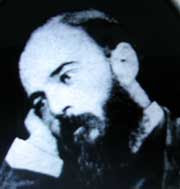
Agnelo A. Montrond
Brockton 01/21/07- It was an honor and a privilege to welcome all of the participants on the event of Dec. 21 evening, at the restaurant Sodade in Brockton, to celebrate with the students who have successfully completed the Capeverdean Language I course at Massasoit Community College.
It certainly was a fine opportunity for them to socialize, have a real taste of the Cape Verdean culture, typical gastronomy, music and more, in a very supportive, friendly and nurturing atmosphere. I would like to take this opportunity to thank all the guest speakers: Jass Stewart, who was a candidate for Mayor of Brockton in the latest municipal elections, was our Keynote speaker; Nezi Brito, a board member of the Cape Verdean Creole Institute who is currently teaching Cape Verdean Creole at Harvard University; Manuel De Pina, Treasurer of the Cape Verdean Creole Institute, Doctor Lourenço Garcia who is the Assistant Principal at the Tolman Senior High School in Rhode Island; Jody Price, Teacher at the Adult Learning Center; Joia Sousa, Admissions Counselor at Massasoit; Jacqueline Jones, Coordinator of Minority Outreach and English Professor at Massasoit; Leonildo Landim, President of the Luso-African Club at Massasoit; Celestino De Pina, board member of the Cape Verdean Creole Institute; Vuca Pinheiro who was the Master of the Ceremonies.
On a special note, I would like to thank the administration of Massasoit Community College, namely Professor Cristina Ajemian, Modern Languages Department Chair, for being the pioneer of the wise initiative to offer Capeverdean Language Courses in this area. The diversity that Massasoit is supposed to embody is actually happening. The college is, in fact, providing a tremendous and extraordinary contribution that helps Capeverde and Capeverdeans in their endeavor of promoting and valuing their native tongue. It is initiative like this that empowers our linguistic and culturally diverse community, by breaking down cultural and linguistic barriers, hence facilitating and expediting the integration and adaptation of Capeverdeans and other minority groups in this host culture.
A thankful acknowledgement goes to Vuca Pinheiro’s band who, with a very high level of mastery, provided that unique, genuine and excellent Cape Verdean musical background to the audience. Also, I would like to express my deepest gratitude to Pedro Silva (Piduca), brother of the deceased Ildo De Souza Silva Lobo, one of the most renowned singer of Mornas and Koladeras, who nurtures a passion for everything that substantiates the authentic spirit of Cape Verdean music. The multi-faceted talented man, Piduca, again chanted and enchanted the audience with a voice resembling very close to that of his deceased brother, especially when he echoed the lyrics of the famous song “nha fidju matxu”. Piduca demonstrated that he did not become a singer of his caliber by chance. However, we need to collectively urge Piduca to continue the wonderful work that his deceased brother has initiated for he is as much as a talented singer of traditional mornas and koladeras.
I would like to extend my recognition to all the participants on the event, for their continued support and cooperation in making the event a great success.
To all the students who have enrolled in this course I would like to express my appreciation and make it clear that it is people like them that will make a positive difference in our community. They have made a very wise and exemplary decision to commence the learning and development of the Capeverdean language. Such initiative is very meaningful for the Capeverdean Community in the United States to whom it is certainly perceived with a sense of joint-venture: Cape Verdeans are learning English as another language; some Americans are learning Cape Verdean Creole as another language. Isn’t that a wonderful platform of linguistic convergence that enables members of the community to stand in the intersection of the efforts in breaking the communication barrier, foster understanding, tolerance and respect for individual differences. It makes me believe that gone is the era of English only. Today’s America is a common space, which is a kind of a mosaic of a variety of cultures and languages. Education in other languages and cultures is a key factor that will unable Greater Brockton Citizens to effectively better share this same common space.
Agnelo A. Montrond



No comments:
Post a Comment